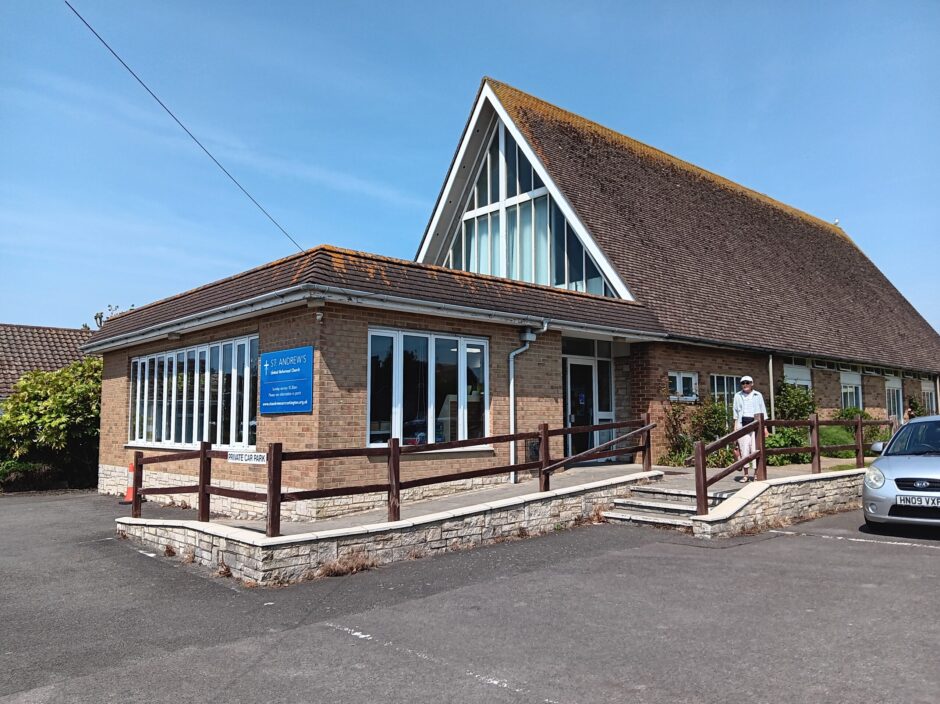
When tensions rise in communities, churches can be agents of peace, compassion, sanctuary, solidarity and support. Below we suggest five ways that church leaders can prepare positively – to be ready to lead, respond and care well at times of unrest.
It is nearly a year since violent disorder broke out in parts of England and Northern Ireland, following the terrible killing of three children in Southport. Protests escalated into rioting, orchestrated by far-right extremists and fuelled by online disinformation, resulting in multiple injuries and arrests, damage to public property and places of worship, and targeted attacks on individuals and accommodation housing people seeking asylum. It made many more people and communities fearful.
Since then, much reflection, analysis and conversation has taken place about what happened, the reasons for it, and what can be learned for the future. One strong message that has emerged is that this social unrest was not an isolated one-off incident; similar events could be triggered at any time.
Here are five practical ways that churches and church leaders can build relationships and foster peace in local communities before a crisis occurs – and be ready to respond when it does.
1. Build relationships with other faith leaders
Where positive relationships have been formed between people of different faiths, communities are stronger. Getting to know other faith leaders in your community is not only a good thing in itself, but it means you will have a network and relationships in place for support and response when crisis strikes. That could be as simple as being able to drop a message of solidarity to your local imam or rabbi, or a more formal inter-faith group which can exchange information or coordinate responses.
Useful resource: Building Good Relations with People of Different Faiths and Beliefs, the code of practice published by the (sadly now defunct) Inter Faith Network.
2. Preach and pray about politics and social issues
Some far-right extremism draws on crude Christian ideas and tropes, and exploits resentments that people can feel when they believe certain issues can’t be discussed. Encourage critical reflection and thoughtful dialogue through preaching, worship and conversation that engages with current political debates and social concerns.
“There is clear evidence that those in our congregations who are regularly exposed to biblical teaching are less likely to show signs of radicalisation and violence.”
Revd Dr Helen Paynter, Baptist minister and theological educator, in The Church, the Far Right, and the Claim to Christianity (2024)
Useful resource: Politics in the Pulpit?, a weekly lectionary-based preaching resource from the Joint Public Issues Team.
3. Forge community connections across difference
In a context of widening polarisation, churches can play a role in bringing people together for conversations with those that hold different views to find common ground and shared interests. When people from different organisations and perspectives are able to meet, discover what they have in common, and forge relationships across divisions of ethnicity, culture, and religion, communities become more resilient to hate, division and violence.
“To see somebody else in the street and rather than think of something that they saw on the news or on social media, they think ‘oh I met somebody like that once and this was the conversation that we had with each other’. I think it helps all of us break down assumptions.” Participant in Citizens UK relational experiment pilot
Useful resource: Organising Together Across Difference from Citizens UK suggests one approach, and includes access to a learning module and a guide to holding a ‘Weaving Trust’ event.
4. Consider your role and stance
Every context is different, but it is helpful to give thought in advance to what role you and your church might play in the event of protests or disorder, and how you could prepare for that. Will you personally choose to be a faith presence, or might you (with others) organise some kind of counter-demonstration or witness for peace, such as a community choir or protective human chain? Could your church building be offered as a safe space – and if so, how will you keep it safe? What role might public prayers or acts of worship play? If you or members of your church community potentially feel at risk, for example because of ethnic background or because of your support for people seeking asylum, what can you do to support the physical and psychological safety of people in the church and community, and what help might you need from others? Talking through these questions calmly in advance will help you to be prepared.
Useful resources: Methodist Church guidelines on Responding to disturbances – being present as a faith leader and Advice for Major Incidents. HOPE not Hate guide to Staying Safe amidst Far Right Violence.
4. Keep offering welcome and celebrating diversity
It’s really important that fear of disorder does not diminish our commitment to inclusion and justice. At a time when people of global majority heritage or who have experience of seeking asylum are particularly feeling vulnerable, it can be very powerful to put on an event or activity which demonstrates the solidarity, care and welcome of the community, and celebrates our diversity. Whether part of a ‘Big Lunch’, a ‘Great Get Together’ or a ‘Welcome Weekend’, events could include a picnic, a community meal, or a moment of reflection.
Useful resource: Join in with Welcome Weekend from 7-10 August: a national moment of solidarity uniting communities in local gatherings across the country to show that welcome still defines our story. This is being organised by Together with Refugees, a coalition of which the JPIT denominations are a part.
Read more
Theos: Disunited Kingdom? Churches and the riots of summer 2024
Helen Paynter and Maria Power (editors): The Church, the Far Right, and the Claim to Christianity (2024). A short summary of its key findings and recommendations is available here.
